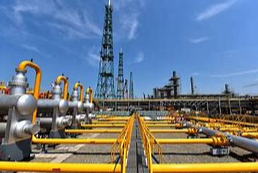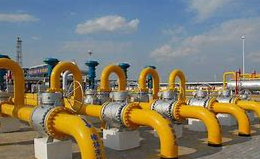Understanding natural gas

5. Why is natural gas important?
Natural gas plays a vital role in meeting our energy needs, while also reducing our reliance on dirtier fossil fuels such as coal and oil. In fact, the natural gas and shale revolutions have played a key role in helping America achieve energy independence. Here are some reasons why natural gas is important:
Clean burning: Natural gas emits fewer greenhouse gases when burned than other fossil fuels.
Abundant reserves: There are abundant reserves of natural gas all over the world.
Reliable: Many parts of the world have excellent natural gas infrastructure.
Flexible: Natural gas can be used for a variety of applications in different industries.
Cost effective: The price of natural gas has historically been lower than other fossil fuels.
As countries around the world strive to transition to cleaner energy sources, natural gas will continue to play an important role in meeting our energy needs while reducing our environmental impact.
6. The negative impact of natural gas on the environment
As a fossil fuel, natural gas is seen as a cleaner alternative to coal and oil. While it does emit fewer pollutants than other fuels, it still has a significant impact on the environment. Here are the negative impacts of natural gas on the environment and climate change:
Air pollution. The combustion of natural gas produces nitrogen oxides, which cause smog and breathing problems. It also releases volatile organic compounds, which can cause health problems such as headaches, nausea, and eye irritation. Methane is a highly harmful greenhouse gas that is released when natural gas is extracted, processed and transported.
Water pollution. Fracking, a method of extracting natural gas from shale rock formations, involves mixing large amounts of water with chemicals that can contaminate nearby water sources. Leaks during transportation can also contaminate water sources.
Land use. Construction and maintenance of pipelines and drilling sites can destroy ecosystems and wildlife habitats. Hydraulic fracturing, or fracking, requires a lot of land for drilling.

7. Advantages and disadvantages
Natural gas does have some advantages over other fossil fuels: when burned as an energy source, it emits fewer pollutants; It can be used as a backup power source for renewable energy systems such as wind and solar.
Of course, these advantages must be weighed against the environmental impact: air pollution from gas flaring, which causes respiratory diseases; Water pollution from fracking can contaminate drinking water sources; Methane leaks have a major impact on climate change.
As a byproduct of oil production, natural gas has historically been viewed as a nuisance. Natural gas is produced along with oil when drilling and extracting oil, but because it is not always economically feasible to separate, extract, and transport the gas, it is sometimes disposed of by flaring off. During combustion, natural gas releases carbon dioxide and other harmful gases into the atmosphere, leading to climate change and air pollution.
By capturing natural gas, rather than burning it away as waste, we can reduce our reliance on traditional fossil fuels while mitigating the environmental damage caused by release combustion.
8. Natural gas as a transition fuel
Often, natural gas is referred to as a "transition fuel" because it can serve as a temporary solution on the road to a more sustainable energy future. As we work to reduce our reliance on fossil fuels and switch to renewable energy sources like wind and solar, natural gas can play an important role in helping us move away from dirtier fuels like coal and oil.
One reason it's considered a "transition fuel" is that natural gas emits fewer pollutants than coal or oil when used as an energy source for combustion production, which means it can help mitigate air pollution and improve public health as we continue to develop clean energy sources. As a backup power source for renewable energy systems such as wind and solar, natural gas can also help ensure that there is always a reliable supply of electricity, even when weather conditions are unfavorable to these renewables.
In a short space and through 8 aspects, this paper gives a brief but comprehensive introduction to natural gas. Although this is only a short article of popular science, it is enough to provide basic knowledge and background for us to have a deeper understanding of the current complex global natural gas market.
- ABB
- General Electric
- EMERSON
- Honeywell
- HIMA
- ALSTOM
- Rolls-Royce
- MOTOROLA
- Rockwell
- Siemens
- Woodward
- YOKOGAWA
- FOXBORO
- KOLLMORGEN
- MOOG
- KB
- YAMAHA
- BENDER
- TEKTRONIX
- Westinghouse
- AMAT
- AB
- XYCOM
- Yaskawa
- B&R
- Schneider
- Kongsberg
- NI
- WATLOW
- ProSoft
- SEW
- ADVANCED
- Reliance
- TRICONEX
- METSO
- MAN
- Advantest
- STUDER
- KONGSBERG
- DANAHER MOTION
- Bently
- Galil
- EATON
- MOLEX
- DEIF
- B&W
- ZYGO
- Aerotech
- DANFOSS
- Beijer
- Moxa
- Rexroth
- Johnson
- WAGO
- TOSHIBA
- BMCM
- SMC
- HITACHI
- HIRSCHMANN
- Application field
- XP POWER
- CTI
- TRICON
- STOBER
- Thinklogical
- Horner Automation
- Meggitt
- Fanuc
- Baldor
- SHINKAWA
- Other Brands




































































































































